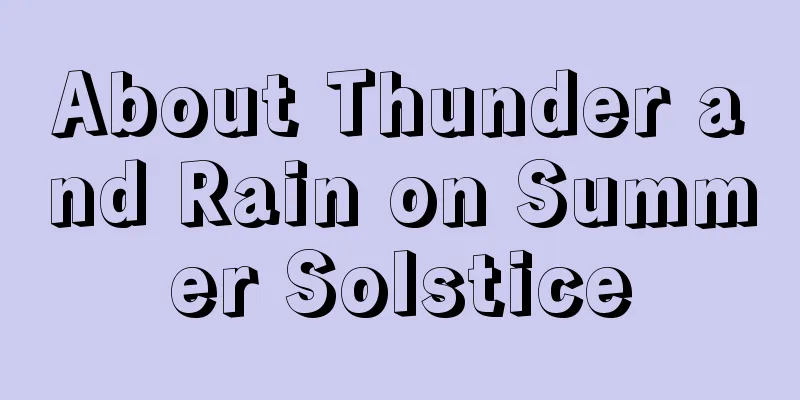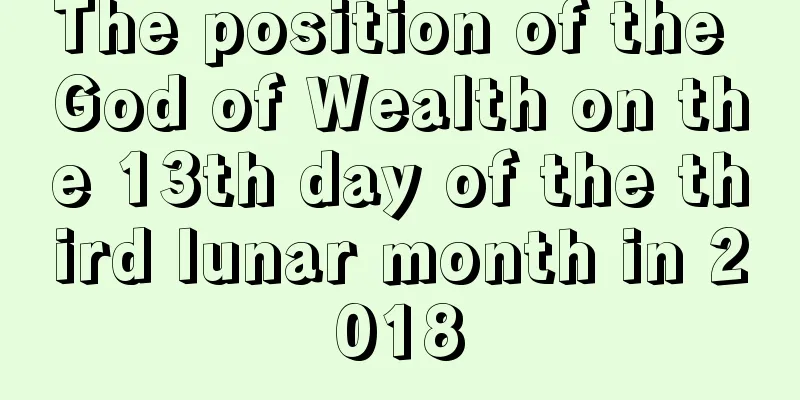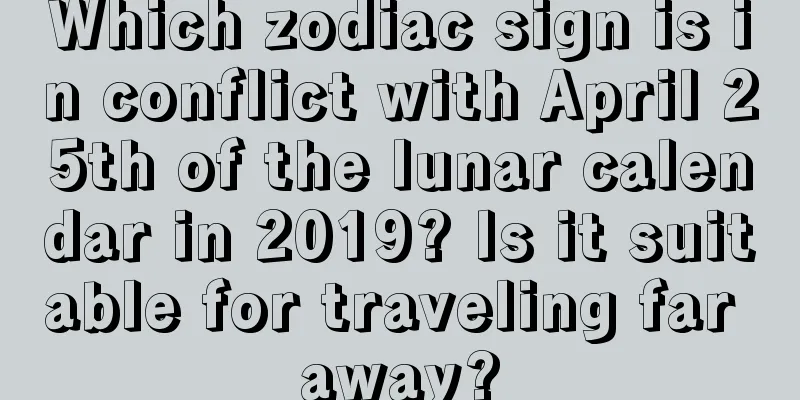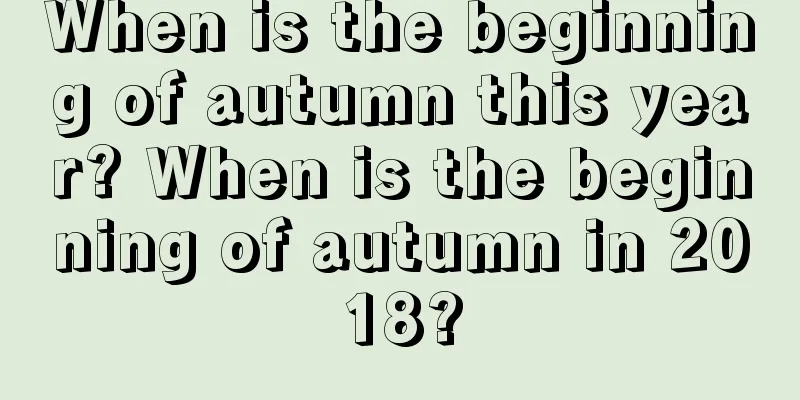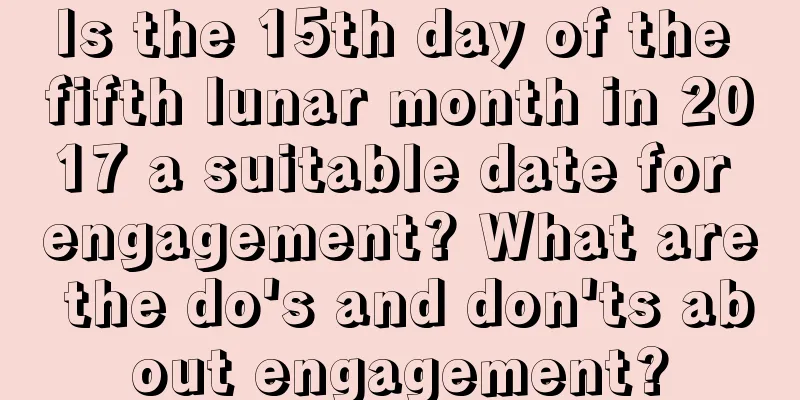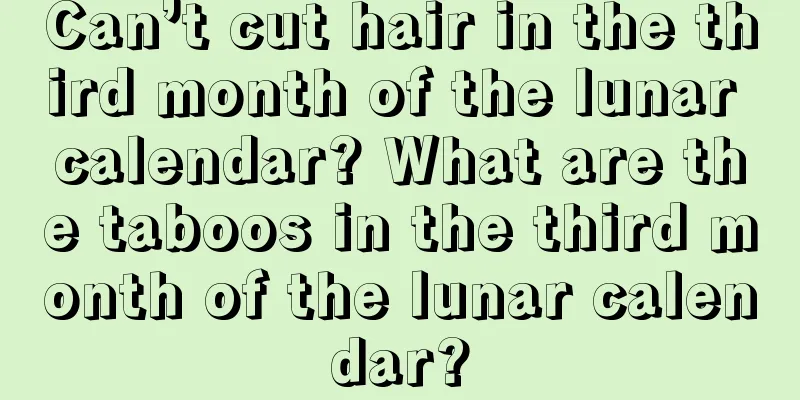Feng Shui: The integration of traditional Chinese medicine and Feng Shui
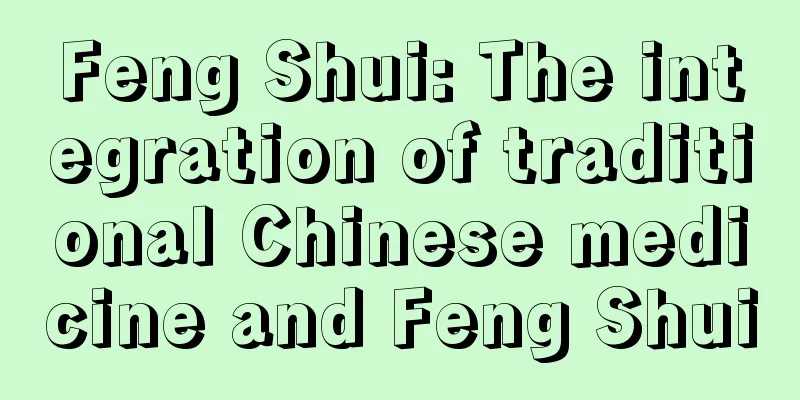
|
Introduction: Traditional Chinese medicine health care refers to a medical activity that uses various methods to maintain life, enhance physical fitness, prevent diseases, and thus achieve longevity. Traditional Chinese medicine focuses on integrity and systematicity, with the goal of preventing disease and treating it before it occurs. Feng Shui health preservation is the application of Feng Shui layout to regulate physical and mental health and treat diseases. It has been around since ancient times and is very effective. Feng Shui disease prevention and treatment mainly utilizes the effect of "energy field". Nowadays, there are many cases of integrating Chinese medicine and Feng Shui health care, which are very effective. Let’s take a look at the specific content below. Mr. Shui Mo’s Feng Shui special topic contains more articles about Feng Shui, allowing you to understand Feng Shui knowledge more quickly. 1. Feng Shui and Chinese Medicine Acupuncture PointsThe objects of study of Traditional Chinese Medicine and Feng Shui are both "Qi", the Qi of the Five Elements and the Qi of Yin and Yang. It can be said that "Qi" is the most typical feature of Chinese culture and an important characteristic that distinguishes it from other cultures. The traditional culture of the Chinese nation is closely related to "Qi". The main reason people get sick is the disharmony and imbalance of Yin and Yang. When yin and yang are balanced and qi flows smoothly, human diseases will have no place to hide. The core of Feng Shui is also the balance and coordination of yin and yang. The environment you choose can store wind and gather energy, which is beneficial to people both physically and mentally. Otherwise, problems may easily occur. Chinese medicine practitioners use the methods of observation, auscultation, questioning and palpation to diagnose patients. Observation is to look at the colors of a person's facial features, the color of the tongue, the structures and shapes of various parts of the human body, as well as the person's spirit; smelling is to smell the odor, mainly the odor of the mouth and the odor of the person's feces and urine; asking is to ask about the condition, asking the patient what discomfort the patient has, asking the patient about the patient's family genetics, whether the patient has ever been ill, what kind of illness the patient has, etc.; feeling is to feel the pulse to determine which of the twenty-eight pulse patterns it belongs to, or whether there are comprehensive or crossed pulse patterns, so as to comprehensively judge the symptoms, the location of the disease, the type of disease and the severity of the disease. 2. Feng Shui and AcupunctureFeng shui masters usually use a compass to do feng shui. However, a skilled Feng Shui master often does not use a compass, but instead uses the Seven Senses method to judge the quality of the environment and the strength or weakness of the aura. The so-called "seven consciousnesses" are: one is eye consciousness, which uses the eyes to conduct a comprehensive analysis of shape, color, light, air, etc.; two is ear consciousness, which uses the ears to conduct a comprehensive analysis of the length, roundness and sharpness of sound waves; three is nose consciousness, which uses the nose to judge the freshness, corruption and odor of the air; four is tongue consciousness, which uses the tongue to analyze and judge the sweetness, freshness, bitterness and astringency of water; five is body consciousness, which uses the magnetic field and aura to analyze and judge the lightness, comfort, stuffiness and sleepiness brought to the human body; six is consciousness, which uses the subconscious to conduct a comprehensive analysis of the negative substances around; seven is question consciousness, which analyzes and judges the historical situation of the environment through asking. Summary: The methods used in Traditional Chinese Medicine and Feng Shui are very similar. Traditional Chinese medicine focuses on the study of the human body, while Feng Shui focuses on the study of the environment in which people live. However, human survival is inseparable from the environment, and the environment is alive and meaningful because of people. Traditional Chinese Medicine and Feng Shui are twins, twin sisters. The 21st century is a century of prosperity for traditional Chinese medicine and Feng Shui. Only when people and the environment develop healthily and live in harmony can politics, economy and society develop steadily. |
<<: You are still single because of these feng shui unfavorable peach blossoms
>>: Feng Shui knowledge: These items should not be placed in the bedroom
Recommend
Can I install the bed on February 27th of the lunar calendar in 2019? What should I pay attention to when installing the bed?
Introduction: In our country's traditional cul...
Is it suitable to get married on the eighth day of the first lunar month in 2018? How to choose an auspicious date for marriage?
For most people, marriage is an experience that on...
2017 December 21st day of the twelfth lunar month, auspicious and unlucky time query
The Fortune Teller website has prepared a large a...
Is it a good idea to open the business on August 17th of the lunar calendar in 2019?
It is important to choose an auspicious day to op...
Is March 13th of the lunar calendar in 2022 a bad day? Can I set up the bed there?
In the third month of the lunar calendar, peach bl...
What gift should girls give to their boyfriends on the Winter Solstice in 2017?
Introduction: In traditional culture, the Winter S...
What is the fate of the twelve zodiac signs born on National Day?
People born in different years have different corr...
Is the seventh day of the ninth lunar month in 2021 a good day to start renovations? Auspicious time query
When decorating a new house, many owners are very ...
What are the commonly used orientation methods of the compass in residential Feng Shui?
Introduction: Compass is an important tool for mea...
Is April 13th of the lunar calendar 2018 a suitable date for opening a new store?
By April, everything is lush and green. The Fortu...
The lunar calendar for the leap June 17th of 2017, is it a good day?
Every day has its good and bad days, auspicious a...
When is the Lower Yuan Festival in 2018? Is it a good time to open a business during the Lower Yuan Festival in 2018?
Introduction: Different days unfold in different w...
Lunar calendar March 20, 2019, is it a good day?
According to the Chinese lunar calendar, March is...
Is it a good idea to pray for blessings on the Winter Solstice in 2019? Is it not advisable to go out on the night of the Winter Solstice?
Introduction: In many cases, we have to choose an ...
Query the location of the God of Wealth on the fourth day of the eleventh month of 2018
The eleventh month of the lunar calendar is appro...
